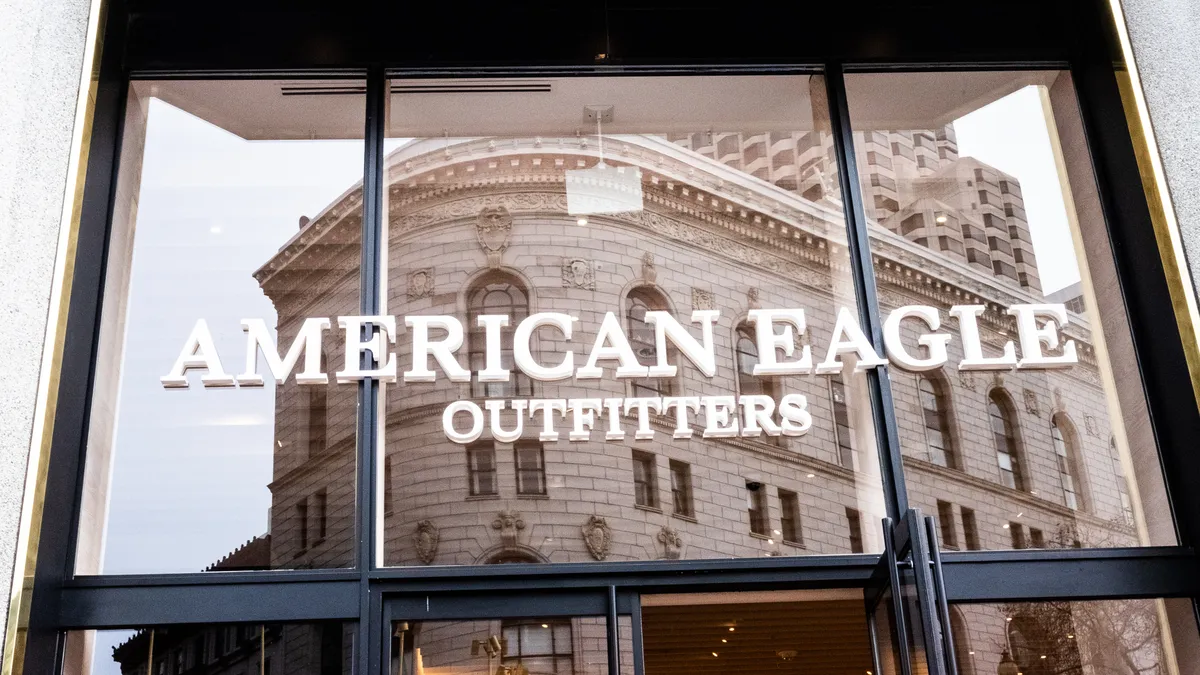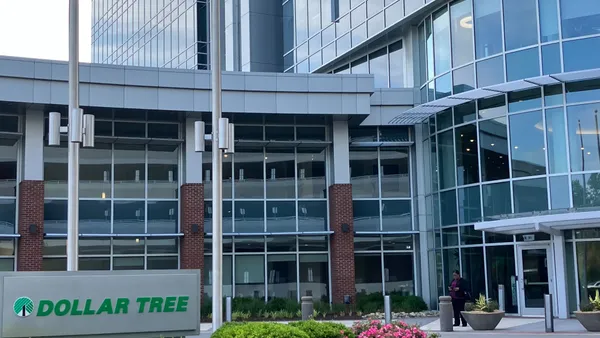Dive Brief:
- American Eagle's recent purchase of Quiet Logistics has helped contribute to an approximately 35% reduction in delivery times, executives said on a Q4 earnings call last month.
- The acquisition has allowed the company to cut down on excess store inventory by fulfilling closer to the sites, according to CFO Michael Mathias.
- American Eagle is now looking to offer its supply chain capabilities to other companies. COO Michael Rempell said the Quiet Logistics acquisition, together with the previous acquisition of AirTerra, "creates a state-of-the-art supply chain platform that we will look to monetize by growing its third-party customer base."
Dive Insight:
Quiet Logistics is allowing American Eagle to "do more with less" inventory and compete with e-commerce giants including Amazon, according to Jay Schottenstein, executive chairman and CEO.
"[T]his acquisition is going to be the anti-Amazon," Schottenstein said. "It's going to give the ability for us and other retailers to be able to compete against the Amazons, the Targets and the Walmarts in the future."
Delayed orders and other pandemic disruptions pushed American Eagle to exert greater control over its supply chain. Owning Quiet Logistics and Air Terra has allowed the retailer to lower delivery costs, reduce the number of shipments per order and cut down on SKUs. The company has reduced inventory and SKU count by up to 40% each since 2019.
"[W]e're putting less inventory in stores and trapping it there because we were able to fulfill closer to those stores," said Schottenstein. "Again, doing more with less inventory, that's the benefit that came through really in a huge way in the AE brand."
American Eagle plans to expand Quiet's node network and roll out the service to other retailers, with the expectation that the business will be profitable in 2023. The company recently hired former Amazon exec Charles Griffith as chief technology officer for Air Terra and Quiet Logistics. Griffith previously worked to enable the launch of Amazon Logistics, according to an American Eagle statement.
"[I]t's very clear to us that in order to compete going forward, all retailers are going to want and need these kind of capabilities," Rempell said. "They're going to need the efficiencies of operating at scale, of being close to the customers of making their inventory more productive of accessing new kind of delivery partnerships and capabilities, and that's what this enables."














